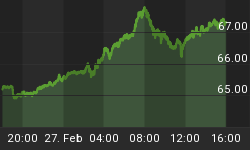Economists who now see American troubles spreading around the world are predicting that foreign central banks will ignore the gathering inflation threat and follow the Fed down the rate cutting path. Similarly, they argue that since the downturn began here, the U.S. recovery will likely be underway while the rest of world is still decelerating. These assumptions have prompted a rally in the dollar, a sell-off in gold, commodities and foreign stocks, and have cast doubts on the ability of foreign economies to "decouple" from the United States. Investors should not take the bait.
America does indeed pose a global threat, but not for the reasons these economists suppose. Foreign economies are suffering not because Americans have slowed their voracious spending, but because they are defaulting on hundreds of billions of dollars of existing loans underwritten by lenders around the world.
The conventional wisdom is that foreign economies depend on Americans to buy their exports. This is false. The global expansion of the past decade has created new demand everywhere, and people and businesses in all corners of the world are spending. However, in America, spending has largely been achieved through a massive vendor financing scheme. Foreign supplied credit has allowed Americans to continue buying, even while American income and savings have dropped. As this credit goes bad, the losses are landing on the bottom lines of foreign financial firms. In other words, the global pain is not resulting from American contraction but from having financed our preceding expansion. This is a critical distinction few have been able to make, and it is vital to appreciating the decoupling that has already occurred beneath the surface.
The current losses that banks in Europe and Asia are now suffering are real, but future losses can be avoided by suspending future lending to Americans. Shutting off this credit will of course torpedo the dollar, but that is precisely what must occur. By allowing the dollar to drop to its natural, unsupported level, not only will the American caboose be decoupled from the global gravy train, but the rest of the cars will move along the tracks much faster. Absent the U.S., there will still be plenty of consumers to buy what is produced, and plenty of investment opportunities for those with savings. Rather than dragging the global economy down, such a development would actually un-tether it.
On the other hand, left to its own devices, the American economy will implode. There will be fewer products for American consumers to buy and very little savings for anyone to borrow.
Some foolishly believe that many of the world's problems result from dollar weakness, and that pushing the dollar back up would be good for all. For example, since the weak dollar is contributing to the rise in oil prices, a stronger dollar should help bring prices down. However, if foreign governments weaken their own currencies to push the dollar up, they will simply succeed in bringing oil prices down for Americans. Oil prices will go up for their own citizens. This can't be an attractive bargain for any European or Asian political leader.
The weak dollar is merely a manifestation of substantial structural problems underlying the American economy. Unfortunately for us, the solution to those problems, as well as the global economic imbalances, can only be found in a weaker dollar. Efforts to artificially prop the dollar up will only exacerbate those imbalances, and make its ultimate fall that much more severe.
For a more in depth analysis of our financial problems and the inherent dangers they pose for the U.S. economy and U.S. dollar denominated investments, read Peter Schiff's book "Crash Proof: How to Profit from the Coming Economic Collapse." Click here to order a copy today.
More importantly, don't wait for reality to set in. Protect your wealth and preserve your purchasing power before it's too late. Discover the best way to buy gold at www.goldyoucanfold.com, download our free research report on the powerful case for investing in foreign equities available at www.researchreportone.com, and subscribe to our free, on-line investment newsletter at http://www.europac.net/newsletter/newsletter.asp.















